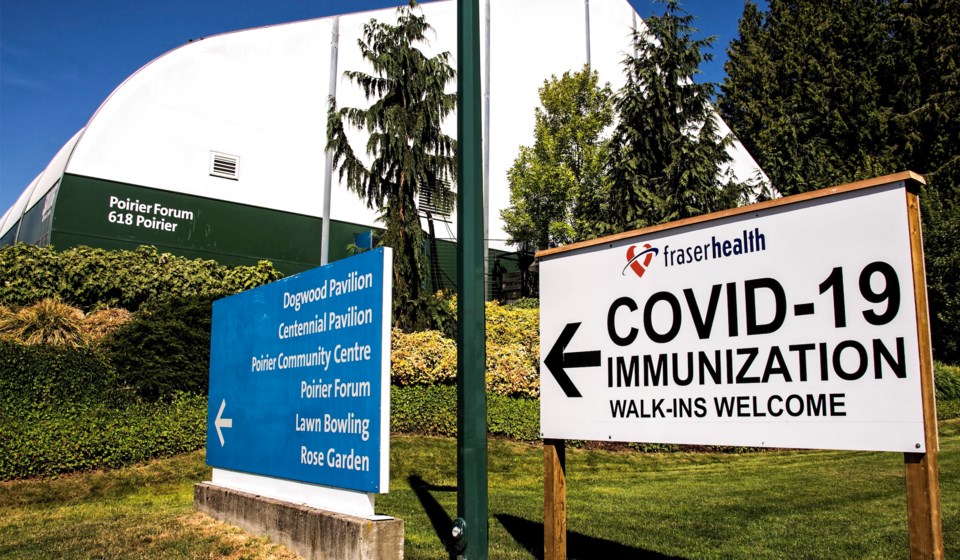Exactly one year ago, Canadians were expressing serious reservations about their elected officials’ preparedness to deal with the COVID-19 pandemic.
When Research Co. and Glacier Media asked Canadians about the future in February 2021, fewer than half (45 per cent) expected the federal government to secure enough vaccine doses to inoculate all Canadians in seven months – as Ottawa had been promised.
Our skepticism extended to provincial administrations, which were tasked with managing COVID-19 along with all other components of the health-care system. A year ago, just over half of Canadians (51 per cent) were satisfied with the vaccination plans and phases outlined by their province, while just two in five (41 per cent) lauded the pace of vaccination efforts.
Seven months later, Canadians expressed more positive views on these issues. In late September 2021, more than two-thirds of Canadians were satisfied with the federal procurement of vaccine doses (69 per cent), the provincial vaccination plans and phases (71 per cent) and the pace of vaccination efforts (70 per cent). These are significant shifts in public opinion based not on perceptions, but on experiences.
The last quarter of 2021 brought the Omicron variant, increased worries about travel and the return of some restrictions across the country. As the pandemic continues, it is clear that the governments that steered clear from fictional deadlines have been the winners.
Late last month, we asked Canadians about “booster shots” for the first time. At least three in five of the country’s residents are satisfied with the procurement of doses (68 per cent), the plans and phases to get booster shots (65 per cent) and the pace of these efforts in their province (61 per cent). The concerns about procurement – which so heavily dominated coverage in the first few months of 2021 – appear to be a distant memory.
When it comes to the plans and phases to get booster shots in the arms of Canadians, the three most populous provinces appear to be doing well, with 68 per cent of Quebecers, 67 per cent of British Columbians and 65 per cent of Ontarians saying they are satisfied with this aspect, followed by Atlantic Canada (64 per cent), Saskatchewan and Manitoba (60 per cent) and Alberta (55 per cent).
Canadians are more anxious when asked to assess the pace of booster shot efforts in their province. Only in Quebec do we see more than two-thirds of residents (67 per cent) expressing satisfaction with the state of affairs. The proportions are lower in Atlantic Canada (61 per cent), Ontario (60 per cent), British Columbia (59 per cent), Alberta (57 per cent) and Saskatchewan and Manitoba (56 per cent).
In Quebec, where residents are traditionally more critical of the way the health-care system operates, satisfaction with the pace of vaccination efforts is higher than in any other region. This coincides with a significant drop in satisfaction with how the pandemic has been managed, going from 72 per cent in December 2021 to 55 per cent in January 2022 – a period that featured the threat of additional taxes to unvaccinated Quebecers.
The situation is different in B.C. Satisfaction with the government (60 per cent) almost perfectly aligns with the way residents feel about the pace of booster shot efforts (59 per cent). In Alberta, even with a majority saying that the current vaccination push is satisfactory (57 per cent), only a third (33 per cent) think the provincial government is managing COVID-19 effectively. The opportunity to run a re-election campaign on the strength of vaccination efforts is now gone. B.C. passed its COVID-19 referendum exceptionally well in 2020, before vaccines were readily available. The governments of Quebec and Ontario will face voters later this year and will need to reconnect on issues that go beyond the pandemic. Alberta will join them in 2023.
Canadians, in great part because of the success of the vaccination efforts in 2021, have come to expect that the booster shots will be delivered to their arms swiftly. Dissatisfaction is low on every aspect related to this next phase of inoculation, from federal procurement to provincial procedures. •
Mario Canseco is president of Research Co.
Results are based on an online study conducted from January 28 to January 30 among 1,000 adults in Canada. The data has been statistically weighted according to Canadian census figures for age, gender and region. The margin of error, which measures sample variability, is plus or minus 3.1 percentage points, 19 times out of 20.





